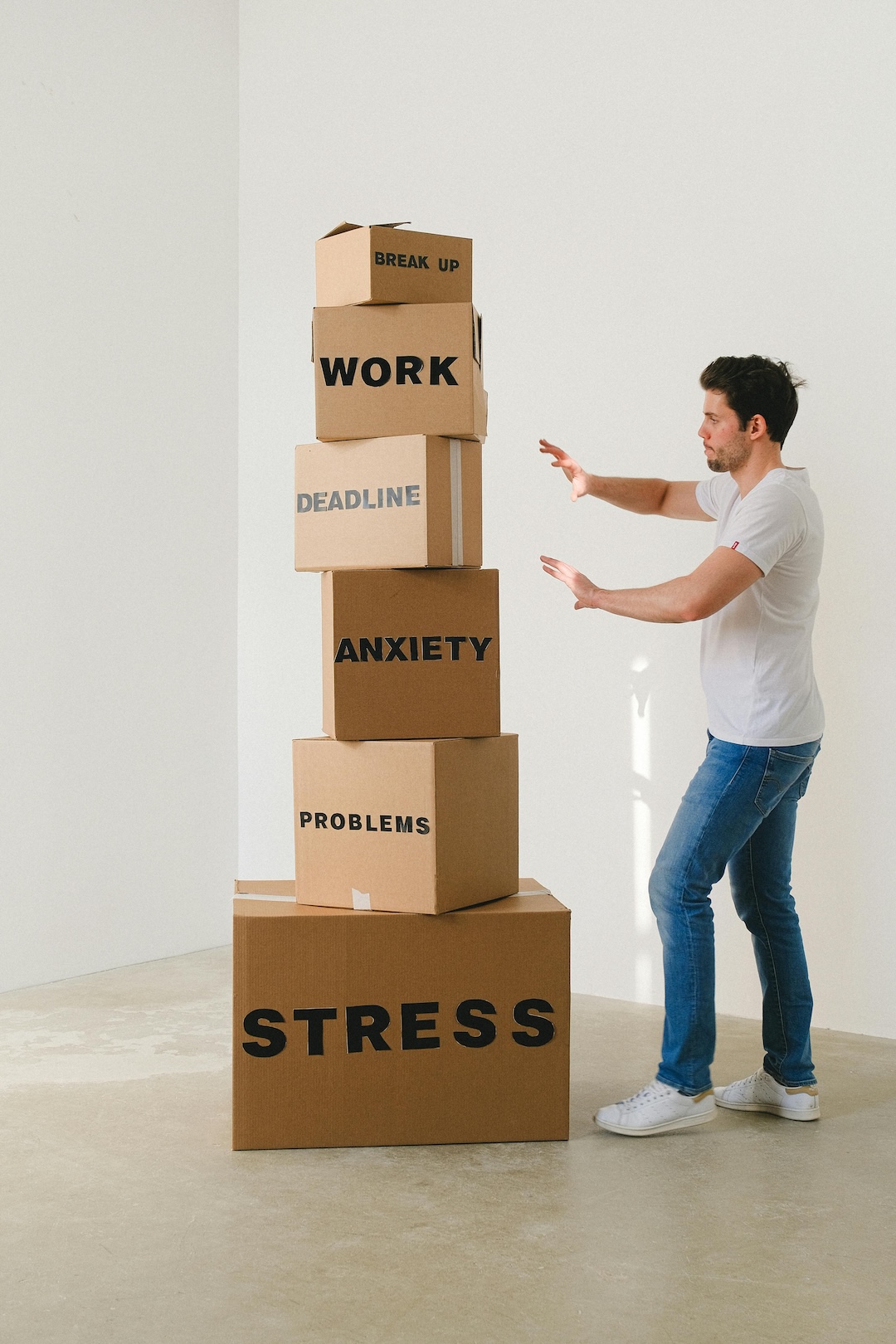
Life can easily feel overwhelming. Most of us find powerlessness distressing and want to feel like we are always in control. It can be disconcerting when we find ourselves in a situation that is far beyond our capability to handle. Navigating the complexities of life and finding practical solutions to our problems can often feel like an exercise in futility. Nevertheless, we can always find hope, and we can devise a strategy that helps us to feel less overwhelmed. We can learn to accept the situation, go beyond the questions of “why?”, and focus instead on “how” we can act in response.
Step 1: Accept
First, we must accept the situation. We must move from our initial instinct to be emotionally reactive into a recognition of what is objectively happening. For instance, imagine that your house was ripped apart by a tornado. Your first reaction might be “it’s terrible that the tornado destroyed my house.” If you are working on acceptance, you would try to change your statement to “my house is in shambles.” It may not change the reality or gravity of the situation, but it keeps us grounded in the facts.
We must also take care not to fall into the other extreme of ignoring or suppressing our emotions about the situation. Life situations can tempt us to dismiss our emotions as completely subjective and unhelpful reactions, but it is important to give them room for input into our judgment of the situation.
Step 2: Stop Asking Why
Naturally, lots of “why” questions may pop into our heads when we undergo suffering. “Why did this happen to me?” is a common lament we may find ourselves expressing in times of difficulty. We may even throw some “always” statements in there too for good measure as we convince ourselves of how unfortunate we are. When we are suffering, we always look for someone to blame, which is an expression of entitlement and the seeds of pride. It can be dangerous to play the blame game, as it never yields a satisfactory solution and can instead lead to wallowing. This series of questions can contribute to sense that the situation is overwhelming. “Why did this tornado hit our house?” seems like a reasonable question to ask but is not very useful for getting the house rebuilt. Sometimes, we might resort to a very factual, dry, emotionless description of what happened.
After Yale upset Baylor in the 2024 NCAA men’s basketball tournament, Taurean Prince was asked how his team could have been out-rebounded. It can be overwhelming to lose a game at this level and be subsequently grilled by reporters. He responded in a matter-of-fact way, as he knew that dwelling on the “why?” would only lead to greater frustration. Rather than criticize his own team’s performance, he went on to describe a rebound, something that must have been obvious to all the reporters at the press conference. Nevertheless, it helped to show that there are some things in life that are simply beyond our control.
Step 3: Start Asking How
Once we allow our reason to intervene, we can move from “why” to “how” questions: “How am I supposed to live today?” It is always better to focus on what we can do than what we cannot. So often, it is easy to let our anxiety take hold of us and think about all the unpleasant aspects of our current situation. It is much more fruitful, however, to focus on what we can do and how we can react appropriately. By focusing on our actions, we re-gain a sense of agency in our lives and let go of the feeling of helplessness that could otherwise overwhelm us.
Going back to the example of the tornado, we can begin by asking the question of how we are going to recover from the damage and move on. In the immediate aftermath, we can make a headcount to make sure everybody is okay. We then let the rescue workers do their jobs and cooperate with the electric, gas, and water companies to make sure that everything is safe before returning. Maybe we work with the insurance company and begin to examine the wreckage to salvage what we can. Since we have already accepted the situation, now what remains is to work through the practical matters.
Faith at the Beginning and at the End
Our faith is powerful when we are in overwhelming situations. It allows us to establish healthy emotional detachment and to analyze things more objectively. When we recognize that God has the last word, we can begin to let go of our own addiction to control. From a perspective of faith, why does God allow us to be in situations that are beyond our control? He allows us to go through these things partially so we may learn to understand that we do not have ultimate control over our own lives. It is especially in these times that he asks us to learn to trust him.
Pope Benedict XVI reminds us that faith needed especially in the dark moments of life.
Abraham’s journey of faith included the moment of joy in the gift of his son Isaac, but also the period of darkness, when he had to climb Mount Moriah to execute a paradoxical order: God was asking him to sacrifice the son he had just given him (Pope Benedict XVI, 19 December 2012).
If we are going to grow in faith, we must learn to accept the moments of darkness alongside the moments of light. This can help us turn overwhelming situations into opportunities for growth.
Subscribe to the newsletter to never miss an article.













